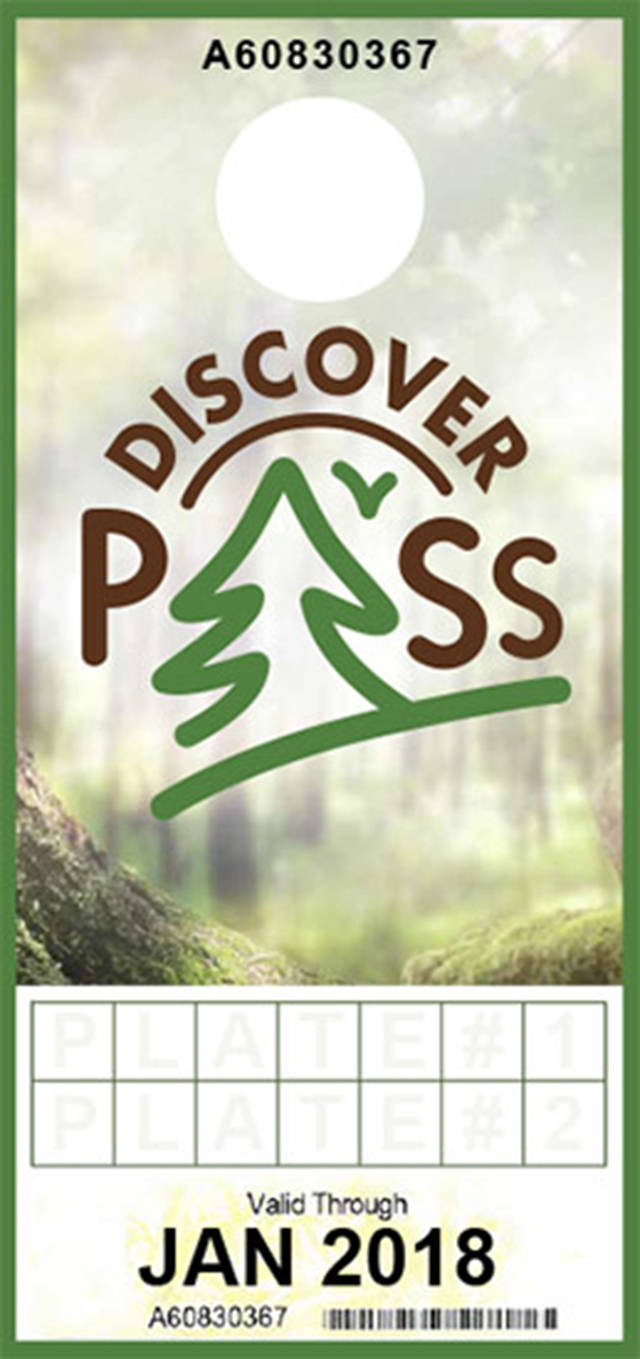By The Herald Editorial Board
It may be time to pass on the Discover Pass many of us keep in our gloveboxes and fish out when we visit a state park in Washington.
That’s the recommendation in a report, commissioned by the Legislature in 2016, that examined funding sources for Washington State Parks and other public lands and the current use of the Discover Pass, the placard that hangs from your vehicle’s rear-view mirror and grants access to state parks, as reported Dec. 27 by The Herald’s Kari Bray.
The review and report, guided by the William D. Ruckelshaus Center, which assists efforts regarding public policy, recommends ending the Discover Pass program as the simplest and fairest system for allowing access to state parks and public lands and generating revenue for maintenance and programs.
Instead of the Discover Pass — for which vehicle owners can pay $30 as part of their annual vehicle licenses tabs and can be used for up to two vehicles — the report recommends granting “pass-free access” to state parks and state public lands for all, charging a mandatory $7 to $15 each year as part of every vehicle’s license fee, removing the opt-out option that allows vehicle owners to skip the parks fee.
The switch, the report concludes, would minimize financial and other barriers to parks and public land access, and provide a more stable and sustainable source of funding for parks and public lands.
While “pass-free” is the report’s preferred recommendation, the report doesn’t prescribe a specific funding source, and offered alternatives that would instead make some changes to the Discover Pass program, including offering a cheaper pass good for one vehicle only.
Currently, only 20 percent of funding for Washington State Parks comes from the state’s general fund. Previous to the 2011 creation of the Discover Pass, the state’s general fund provided about 80 percent for park maintenance and programs.
And like the National Park System, which is facing a $12 billion maintenance backlog, Washington State Parks has $500 million of maintenance projects identified but as yet unfunded by the Legislature.
The proposal is certain to face opposition from those who believe that $30 should be the sacrosanct limit for all car tabs, but the numbers of that club may be dwindling.
Mukilteo initiative maven Tim Eyman was unsuccessful in gathering enough signatures to place an initiative on the ballot that would have dropped weight fees and vehicle fees charged by cities and transportation districts and would have zeroed out Sound Transit’s excise tax for its light rail and bus rapid transit projects. Eyman failed, he said, because of a lack of paid signature gatherers. But if opposition to car tab taxes is widespread, recent coverage regarding the Sound Transit tax package should have provided a favorable environment for gathering signatures, even without a bounty for every John Hancock.
And the report makes the case for levying support for state parks through vehicle tabs. Visitors to state parks, the report reasons, typically arrive by vehicle, assuring that a fair representation of state residents would contribute to their support. And maintenance of parking lots and trailheads also is among the more significant costs to the state parks system, as well as the Department of Fish and Wildlife and Department of Natural Resources, which also receive funding through the Discover Pass.
The funding source that would be most sustainable and most fair would be a return to full funding through the state’s general fund. But a switch back to the general fund — at a time when lawmakers are scrabbling to piece together funding for K-12 education and other responsibilities, is unlikely and would be possible only with a major reform of the state’s regressive tax system.
In the past, the Ruckelshaus Center has guided efforts such as the Joint SR 530 Landslide Commission, which made useful recommendations following the 2014 Oso landslide on responses to natural disaster and threats. More recently, it recommended reforms for governance and delivery of care for the Snohomish Health District.
In these and other efforts, the center has used a review process that involves a range of stakeholders and results in useful and exhaustive reports. The Ruckelshaus report on state park funding and its recommendations continues that tradition and should be consulted and adopted by the Legislature.
At a time when the National Park System is moving forward with a proposal to nearly triple its entrance fees for select parks, including Rainier and Olympic, Washington state’s parks and public lands should serve as an example of open access of public lands for all, with adequate funding provided by its residents.
Talk to us
> Give us your news tips.
> Send us a letter to the editor.
> More Herald contact information.

























